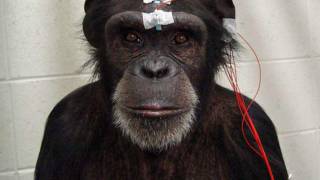Sticks and stones: Brain releases natural painkillers during social rejection
Source: scienceblog.com
 “Sticks and stones may break my bones, but words will never hurt me,” goes the playground rhyme that’s supposed to help children endure taunts from classmates. But a new study suggests that there’s more going on inside our brains when someone snubs us – and that the brain may have its own way of easing social pain.
“Sticks and stones may break my bones, but words will never hurt me,” goes the playground rhyme that’s supposed to help children endure taunts from classmates. But a new study suggests that there’s more going on inside our brains when someone snubs us – and that the brain may have its own way of easing social pain.The findings, recently published in Molecular Psychiatry by a University of Michigan Medical School team, show that the brain’s natural painkiller system responds to social rejection – not just physical injury.
What’s more, people who score high on a personality trait called resilience – the ability to adjust to environmental change – had the highest amount of natural painkiller activation.
The team, based at U-M’s Molecular and Behavioral Neuroscience Institute, used an innovative approach to make its findings. They combined advanced brain scanning that can track chemical release in the brain with a model of social rejection based on online dating. The work was funded by the U-M Depression Center, the Michigan Institute for Clinical and Health Research, the Brain & Behavior Research Foundation, the Phil F Jenkins Foundation, and the National Institutes of Health.
They focused on the mu-opioid receptor system in the brain – the same system that the team has studied for years in relation to response to physical pain. Over more than a decade, U-M work has shown that when a person feels physical pain, their brains release chemicals called opioids into the space between neurons, dampening pain signals.
David T. Hsu, Ph.D., the lead author of the new paper, says the new research on social rejection grew out of recent studies by others, which suggests that the brain pathways that are activated during physical pain and social pain are similar.
“This is the first study to peer into the human brain to show that the opioid system is activated during social rejection,” says Hsu, a research assistant professor of psychiatry. “In general, opioids have been known to be released during social distress and isolation in animals, but where this occurs in the human brain has not been shown until now.”
The study involved 18 adults who were asked to view photos and fictitious personal profiles of hundreds of other adults. Each selected some who they might be most interested in romantically – a setup similar to online dating.
But then, when the participants were lying in a brain imaging machine called a PET scanner, they were informed that the individuals they found attractive and interesting were not interested in them.
Brain scans made during these moments showed opioid release, measured by looking at the availability of mu-opioid receptors on brain cells. The effect was largest in the brain regions called the ventral striatum, amygdala, midline thalamus, and periaqueductal gray – areas that are also known to be involved in physical pain.
[...]
Read the full article at: scienceblog.com






















